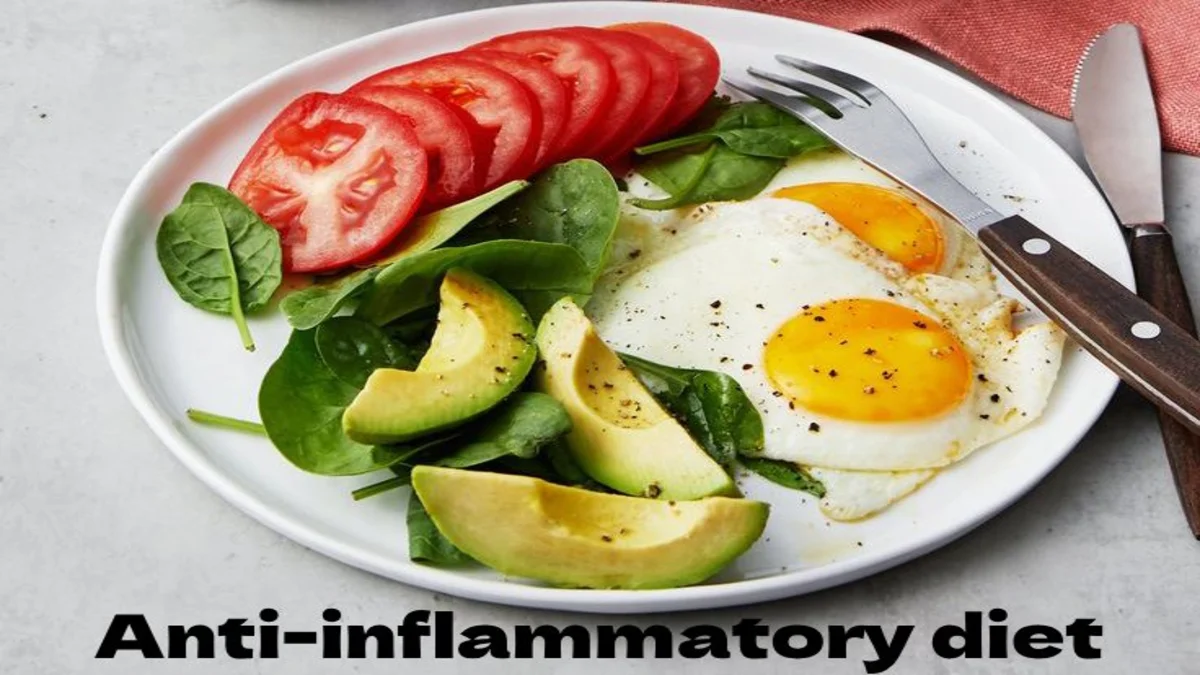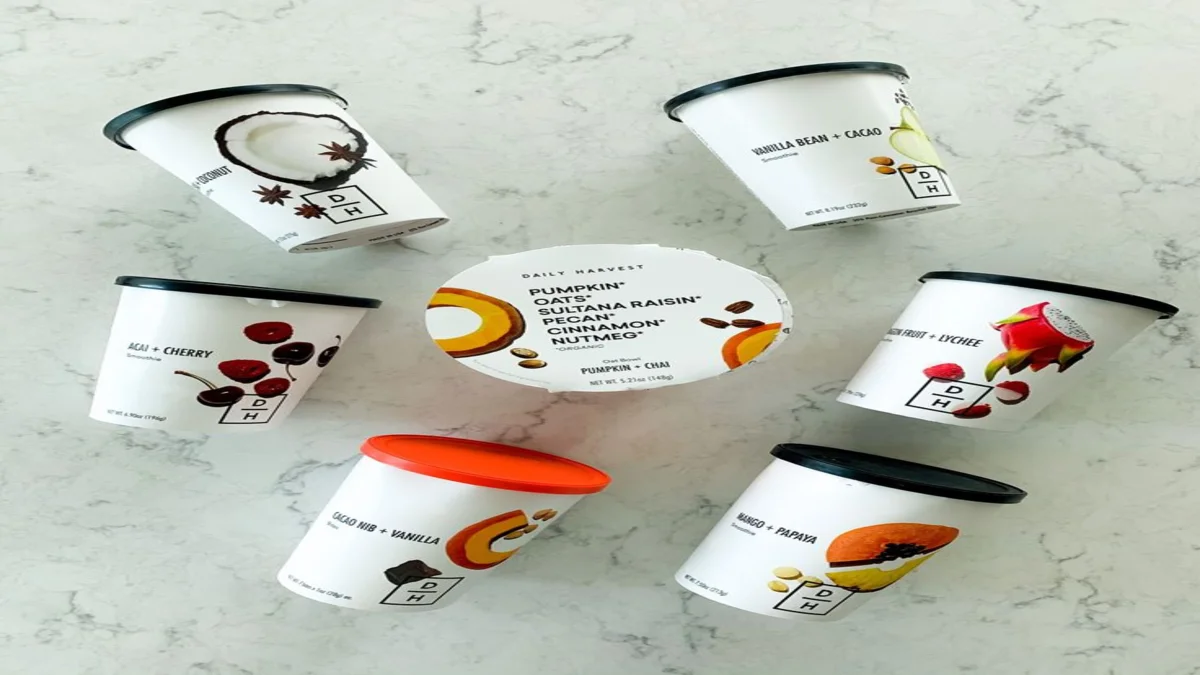Are you looking to improve your health and well-being? Have you heard about the benefits of an anti-inflammatory diet but are unsure where to start?
Inflammation is the body’s natural response to injury or infection, but chronic inflammation can lead to various health issues such as heart disease, diabetes, and arthritis. An anti-inflammatory diet focuses on eating foods that can help reduce inflammation in the body, leading to improved overall health.
What is an anti-inflammatory diet?
An anti-inflammatory diet focuses on consuming foods that help combat inflammation in the body, which is known to be the root cause of various chronic diseases.
By emphasizing whole, nutrient-dense foods and minimizing processed items, this diet aims to reduce inflammation levels, leading to improved overall health.
Key Concepts to Understand:
- Healthy Fats: Incorporating sources of healthy fats like avocados, olive oil, and nuts can help reduce inflammation in the body.
- Fiber-Rich Foods: Whole grains, beans, and legumes are essential components of an anti-inflammatory diet due to their high fiber content.
- Anti-Inflammatory Spices: Turmeric, ginger, and cinnamon are examples of spices known for their anti-inflammatory properties.
- Avoiding Inflammatory Foods: Processed foods, sugary treats, and excessive red meat consumption should be limited as they can promote inflammation.
By adopting an anti-inflammatory diet, individuals may experience reduced inflammation, improved digestion, enhanced energy levels, and a lower risk of developing chronic conditions.
The role of antioxidants
Antioxidants are powerful compounds that play a crucial role in maintaining overall health and well-being.
They are essential in combating oxidative stress caused by free radicals in the body.
By neutralizing these harmful molecules, antioxidants help reduce inflammation, boost the immune system, and protect cells from damage.
Key Points:
- Inflammation Reduction: By reducing oxidative stress, antioxidants help decrease inflammation throughout the body.
- Disease Prevention: Consuming antioxidant-rich foods is linked to a lower risk of chronic diseases like heart disease and cancer.
- Immune System Support: Antioxidants strengthen the immune system, enabling the body to defend against infections and illnesses more effectively.
- Skin Health: Antioxidants contribute to healthy skin by combating free radicals responsible for premature aging and skin damage.
Including a variety of colorful fruits, vegetables, nuts, and seeds in your diet can provide a wide range of antioxidants to support your health and well-being.
Incorporating these foods into your meals can help optimize your body’s defense mechanisms and promote longevity.
Types of Anti-inflammatory Diet
When it comes to anti-inflammatory diets, there are several types to choose from, each offering unique benefits for overall health and well-being.
By incorporating these different approaches into your lifestyle, you can better manage inflammation in the body and promote better health outcomes.
Here are some popular types of anti-inflammatory diets:
Paleo Diet: The Paleo diet focuses on whole foods, including lean meats, fish, fruits, vegetables, nuts, and seeds while avoiding processed foods, grains, and sugars. This can help lower inflammation and improve overall health.
Plant-Based Diet: A plant-based diet centers around eating predominantly fruits, vegetables, nuts, seeds, and legumes. This approach is high in fiber, vitamins, and minerals, which can combat inflammation in the body.
Ketogenic Diet: The ketogenic diet involves high fat, moderate protein, and low carb intake. It may help reduce inflammation by switching the body’s energy source to burning fats.
By exploring and incorporating these various anti-inflammatory diets, you can find the one that best suits your preferences and health goals.
Who can it help?
The Anti-Inflammatory Diet can benefit a wide range of individuals, providing an opportunity for improved health and well-being.
Understanding who can benefit from this diet is crucial in realizing its potential impact on various individuals.
Here’s a breakdown of the key groups that can be positively impacted:
- People with Autoimmune Disorders: Autoimmune disorders, where the immune system mistakenly attacks the body’s tissues, can benefit from this diet as it helps in reducing inflammation, which is often a primary driver of these conditions.
- Individuals Seeking to Enhance Overall Health: Even without specific health conditions, anyone looking to improve their health, boost immunity, and reduce the risk of chronic diseases can adopt an anti-inflammatory diet for long-term well-being.
- Athletes and Fitness Enthusiasts: Supporting muscle recovery, reducing exercise-induced inflammation, and improving overall performance are some ways in which athletes and fitness enthusiasts can benefit from this diet.
Foods to eat
When following an anti-inflammatory diet, it’s crucial to focus on incorporating a variety of foods that can help combat inflammation in the body.
By making mindful choices and including the right ingredients in your daily meals, you can significantly improve your overall health and well-being.
Here are some key foods to include in your anti-inflammatory diet:
- Leafy Greens: Vegetables like spinach, kale, and Swiss chard are packed with antioxidants and nutrients that help reduce inflammation.
- Berries: Blueberries, strawberries, and raspberries are excellent sources of antioxidants that can help fight inflammation.
- Nuts and Seeds: Almonds, walnuts, flaxseeds, and chia seeds are all great choices as they contain healthy fats and fiber.
- Whole Grains: Opt for whole grains like brown rice, quinoa, and whole oats, which are high in fiber and can help lower inflammation in the body.
- Turmeric: This spice contains curcumin, a compound with powerful anti-inflammatory properties.
Foods to limit
When following an anti-inflammatory diet, it is essential to be mindful of the foods that can contribute to inflammation in the body.
By limiting certain items, individuals can better manage inflammation levels and promote overall health.
Here are some key foods to be cautious of:
- Refined Carbohydrates: White bread, pasta, and pastries are examples of refined carbs that can spike blood sugar levels, leading to inflammation.
- Sugary Beverages: Sodas, energy drinks, and sweetened beverages are packed with sugar, which can promote inflammation and various health issues.
- Trans Fats: Found in fried foods, margarine, and packaged snacks, trans fats can increase inflammation in the body.
- Excessive Alcohol: Alcohol consumption in excess can disrupt gut health, cause inflammation, and weaken the immune system.
Anti-inflammatory diet tips
Incorporating anti-inflammatory diet tips into your lifestyle can have a transformative impact on your health and well-being.
By focusing on consuming foods that help reduce inflammation in the body, you can combat various chronic diseases and improve overall health.
Here are key points to keep in mind when following an anti-inflammatory diet:
- Load Up on Fruits and Vegetables: Aim to fill your plate with a colorful array of fruits and vegetables rich in antioxidants and phytonutrients that combat inflammation.
- Choose Whole Grains: Opt for whole grains like quinoa, brown rice, and oats over refined grains to reduce inflammation and promote gut health.
- Spice It Up: Turmeric, ginger, cinnamon, and other spices have powerful anti-inflammatory properties, so don’t hesitate to season your dishes with them.
- Limit Processed Foods: Processed foods often contain inflammatory ingredients like refined sugars and unhealthy fats, so try to minimize their consumption.
By following these anti-inflammatory diet tips, you can revolutionize your health and experience the benefits of reduced inflammation, improved immune function, and enhanced overall well-being.
Conclusion
Adopting an Anti-Inflammatory Diet can truly revolutionize your health and well-being.
By incorporating inflammation-fighting foods and eliminating pro-inflammatory ones, you can potentially reduce the risk of chronic diseases, enhance your immune system, and improve overall health outcomes.
Throughout this article, we have explored the key principles of an Anti-Inflammatory Diet, including the benefits of consuming nutrient-rich whole foods such as fruits, vegetables, healthy fats, and lean proteins.
We have also discussed the importance of avoiding processed foods, sugars, and unhealthy fats, which can exacerbate inflammation in the body.
By following the guidelines outlined in this article, you can embark on a journey toward better health and vitality.
Remember, small changes in your daily eating habits can significantly impact your overall well-being.
So, why not start today and nourish your body with the power of anti-inflammatory foods?
Take charge of your health and embrace the Anti-Inflammatory Diet to unlock a healthier, happier version of yourself.
Your body will thank you for it in the long run.
FAQs
What is the best anti-inflammatory diet?
Omega-3 Fatty Acids: Foods like fatty fish (salmon, mackerel), flaxseeds, chia seeds, and walnuts are great sources of omega-3 fatty acids, known for their anti-inflammatory properties.
Herbs and Spices: Turmeric, ginger, cinnamon, and garlic are known for their anti-inflammatory effects and can easily be incorporated into various dishes.
Limit Processed Foods: Processed foods, high in unhealthy fats, sugars, and additives, can promote inflammation in the body. It’s best to minimize their consumption.
What foods flush out inflammation?
Berries: Blueberries, strawberries, and raspberries are packed with antioxidants that combat inflammation at the cellular level.
Leafy Greens: Spinach, kale, and other leafy greens are high in vitamins, minerals, and antioxidants that help reduce inflammation.
Nuts and Seeds: Almonds, walnuts, flaxseeds, and chia seeds are excellent sources of healthy fats and antioxidants that fight inflammation.
Turmeric: This vibrant spice contains curcumin, a compound with powerful anti-inflammatory effects.
Green Tea: Rich in polyphenols, green tea can help reduce inflammation and protect against certain chronic diseases.
Remember, consistency is key when it comes to reaping the benefits of an anti-inflammatory diet.
What foods are strong anti-inflammatories?
Berries: Blueberries, strawberries, and raspberries are packed with antioxidants and anti-inflammatory compounds.
Leafy Greens: Spinach, kale, and collard greens are high in vitamins, minerals, and antioxidants that combat inflammation.
Nuts and Seeds: Almonds, walnuts, flaxseeds, and chia seeds are excellent sources of healthy fats and antioxidants.
Turmeric: Known for its active compound curcumin, turmeric is a potent anti-inflammatory spice.
Olive Oil: Extra-virgin olive oil contains oleocanthal, which functions similarly to ibuprofen in reducing inflammation.
Tomatoes: Rich in lycopene, tomatoes possess anti-inflammatory properties that can benefit overall health.
How do you flush inflammation out of your body?
Incorporate Healthy Fats: Omega-3 fatty acids found in fish, chia seeds, and walnuts are potent anti-inflammatory agents.
Choose Whole Grains: Opt for whole grains like brown rice and quinoa over refined grains to lower inflammation.
Spice it Up: Turmeric, ginger, and garlic are known for their anti-inflammatory properties.
Limit Processed Foods: Highly processed foods often contain ingredients that trigger inflammation.
Stay Hydrated: Drink plenty of water to help your body flush out toxins.
Manage Stress: Stress can exacerbate inflammation, so incorporating stress-reducing activities like yoga and meditation can be beneficial.
References
- https://www.ncbi.nlm.nih.gov/pmc/articles/PMC10261540/
- https://www.frontiersin.org/articles/10.3389/fnut.2017.00052/full
- https://pubmed.ncbi.nlm.nih.gov/28302405/
- https://www.ncbi.nlm.nih.gov/pmc/articles/PMC8389558/
Disclaimer: The information provided here is for educational/awareness purposes only and is not intended to be a substitute for medical treatment by a healthcare professional and should not be relied upon to diagnose or treat any medical condition. The reader should consult a registered medical practitioner to determine the appropriateness of the information before consuming any medication. Elnodi does not provide any guarantee or warranty (express or implied) regarding the accuracy, adequacy, completeness, legality, reliability, or usefulness of the information; and disclaims any liability arising thereof.





